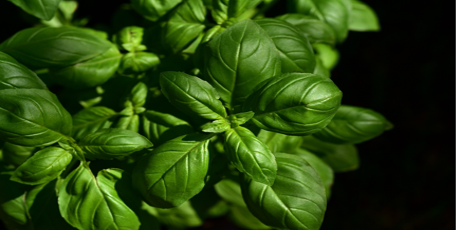Why plants are central to saving the planet 03 Feb 2020

Opinion: As the new UN report on climate change and land use makes clear, we need to rediscover the importance of plants
- By Dr Eoin Lettice, School of Biological, Earth and Environmental Sciences/ERI
August 2019’s report from the UN's Intergovernmental Panel on Climate Change (IPCC) is just one of many that seem to be rolling off the presses at present. All point to the same climate crisis and how human influence has degraded the environment to such an extent that we are now beginning to reap the disastrous consequences.
Written by over 100 authors from 52 different countries (over 50% of which are developing nations), the report analysed results from over 7,000 different scientific reports and dealt with over 28,000 comments from governments, NGO’s and other interested parties. It’s a huge piece of work and we need to take notice of what it says. And one of the main messages is that if we are going to solve the defining crisis of our generation, we need to rediscover the importance of plants and encourage our best and brightest to study plants.
We’ve known for a long time that agriculture, however it is practiced, is not environmentally neutral. Humans currently use between one quarter and one third of the planet’s available land for agriculture. On top of that, agriculture accounts for around 70% of fresh water use on the planet. Add to that the energy costs of producing food: fertilisers, transport, packaging, etc. What we get is a system for producing food that is taking a heavy toll on the planet.
And then we go and waste a big chunk of it. The IPCC report estimates that between 25% and 30% of food produced globally is wasted – in the field, in transport or storage, in the supermarket or in our own fridges at home. I’ve seen some reports suggest that the figure is closer to 50%. Some of that waste is unavoidable but much of it isn’t. Here’s somewhere where we can all take individual responsibility for not wasting food. Additionally, we need more plant pathologists to understand why fungal, bacterial and viral plant diseases attack crops in the field and post-harvest.
The effects of climate change are already noticeable across the world. Erratic weather patterns; the expansion of deserts; and the contraction of the polar regions are all red flags that have been waving for some time. There is no doubt now that these changes are posing major challenges for nature and for agriculture.
We need to do less with more. We need, as a planet, to produce more food on less land to feed a growing human population. That isn't going to be easy but if we are successful, it will be because we are able to breed new crop varieties that are higher yielding and capable of growing in dynamic and challenging environments. Here too, plant scientists and geneticists will be needed to use a range of tools – some old, some new- to do this job. Traditional plant breeding, mutagenesis, genetic engineering and gene-editing will all be in the toolbox.
The IPCC report also makes clear that we need to address our relationship with meat and dairy. Since 1961, the global per capita supply of meat has doubled. The beef protests in Ireland in recent times suggest all is not well with the beef industry here. Farmers get a small fraction of the supermarket price for their beef, and if their representatives are to believed, are forced to sell at a price below the cost of production. All this because supermarkets want to sell us cheap meat. Given the environmental cost of beef, it should not be cheap. As consumers, we should be eating less of it and paying more for it. Farmers too should be producing less but getting a fair and sustainable price for what they do produce.
Overall, we should be encouraging a global shift away from meat-based diets to plant-based foods. The recent EAT/Lancet report has demonstrated that this sort of dietary change will have benefits not just the environment, but our own health too.
Of course, the solutions outlined in the IPCC report will not solve the problem immediately. The climate emergency has been centuries in the making and it will now take long-term solutions to resolve. But that shouldn’t stop us from making big changes now.
If there is light at the end of the tunnel it is that this problem can still be solved and that those who study and carry out research on plants will be at the forefront. Whether it’s planting the millions of trees needed to increase carbon sequestration; protecting natural ecosystems such as the Amazon rainforest from deforestation; increasing food security through increased yields; breeding novel crops for a changing climate; or developing bioenergy crops to wean us off fossil fuels, many of the solutions are plant-based. The message to this generation’s Leaving Cert students: if you want to change the world, study plants.